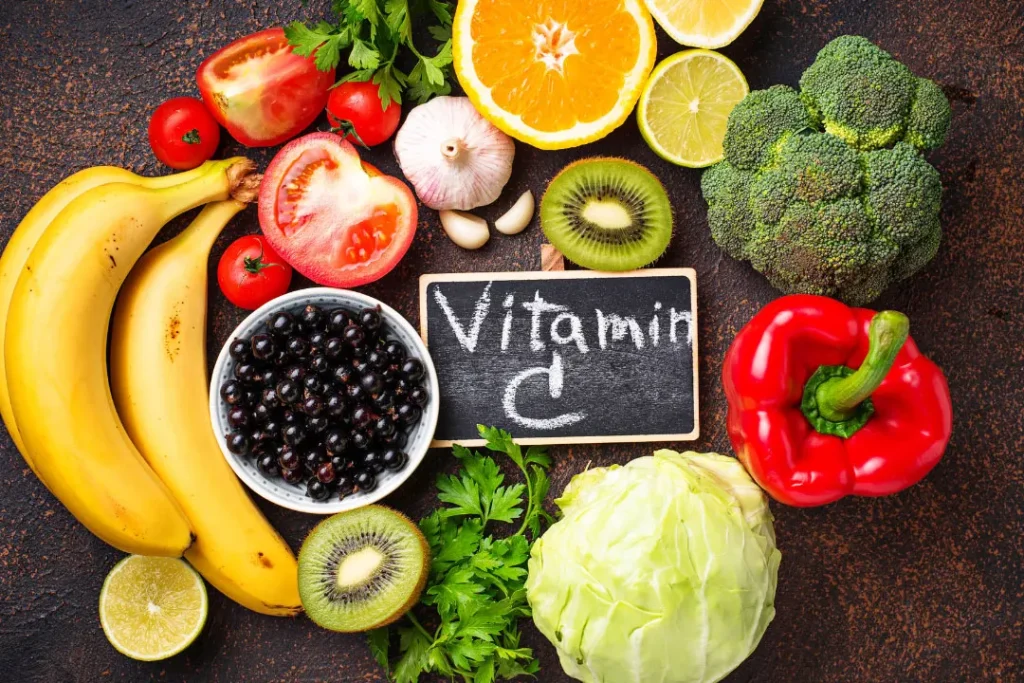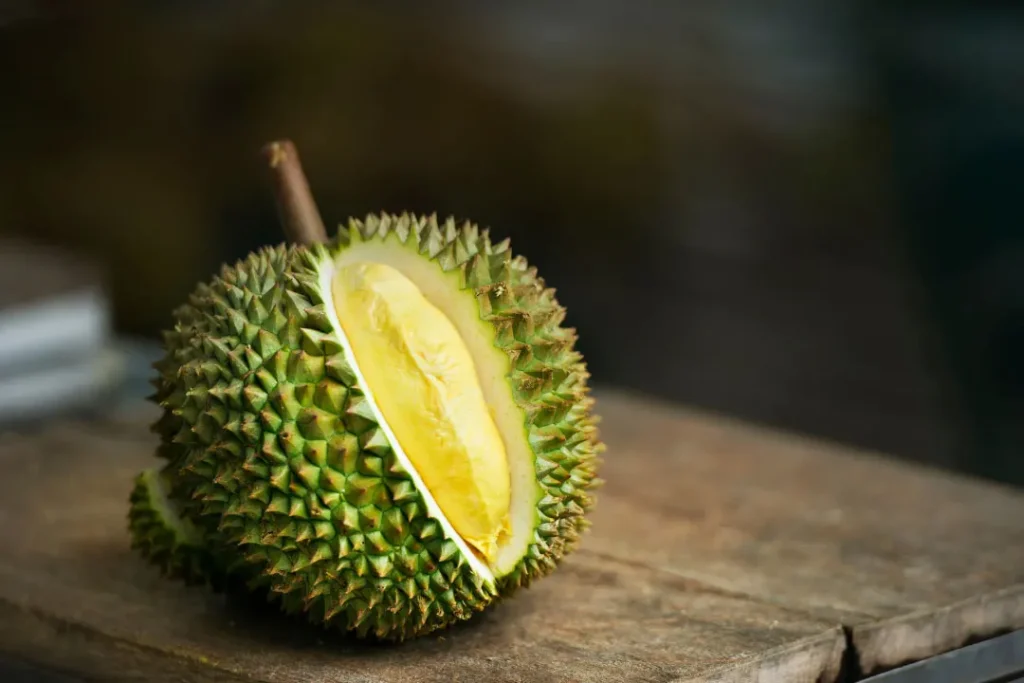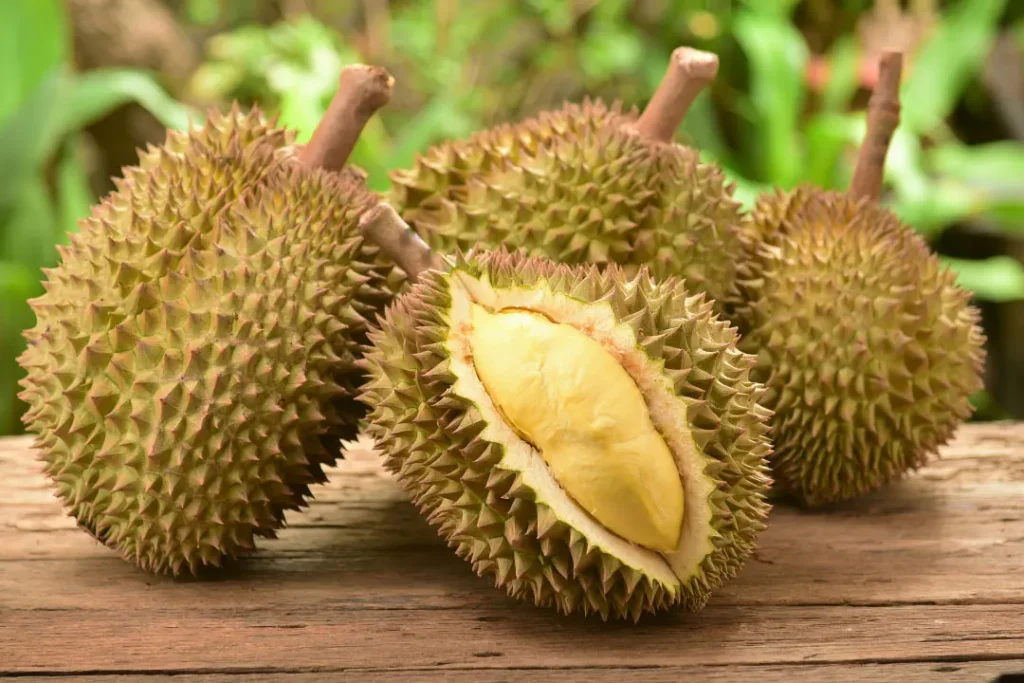The tropical fruit durian (durio zibethinus) is common in Southeast Asia, and is sometimes referred to as the “King of Fruits” because of its gigantic size, distinctive aroma, and high nutritional value. Durian’s intrinsic duality of attraction and repulsiveness creates an intriguing contradiction that draws both researchers and consumers to an interest of its complex chemistry and health benefits.
You May Also Like:
Coca: Benefits, Dosage, Side Effects, Drug Interactions, and Other Important Information
Colocynth: Benefits, Dosage, Side Effects, Drug Interactions, and Other Important Information
Durian: Benefits, Dosage, Side Effects, Drug Interactions, and Other Important Information is an original (NootroPicsPlanet) article.
Nature of Durian
Durian is in the malvaceae family and it is a part of the genus durio, which has a unique prickly exterior and loculated segments of creamy flesh. Durian has a fascinating chemical composition that includes a variety of substances that add to its flavor, aroma, and nutritional value. Esters, sulfides, ketones, and thioacetals are the main substances responsible for the notorious aroma of durian. A complex blend of sugars (sucrose, fructose, and glucose), organic acids (such malic, citric, and succinic acid), and volatile flavor molecules determines the flavor of the durian fruit.
Health Benefits of Durian
The macronutrients, vitamins, minerals, and bioactive substances make up durian’s nutritional profile. Dietary fibers are abundant in durian and are crucial for metabolic and intestinal health. Its high vitamin content, especially vitamin C, has powerful antioxidant qualities that are essential for the immune system and cellular health. Potassium levels are also present in durian, which promote cardiovascular health by controlling blood pressure.
Additionally, durian has a high concentration of phenolic components, such as flavonoids, anthocyanins, and tannins, which contribute to its anti-inflammatory, antibacterial, and antioxidant effects. Recent research has shed light on these bioactive chemicals’ potential anti-cancer abilities. For instance, research shows that durian extract is able to stop the spread of numerous cancer types, although more testing is required to confirm this.

Chemistry of Durian
The chemical makeup of durian is intricate, containing a wide range of substances that contribute to its distinctive organoleptic qualities and nutritional value. Esters, sulfides, ketones, and thioacetals are the critical substances responsible for the infamous scent of durian. These substances are byproducts of the fruit’s internal metabolism of fatty and amino acids.
Sucrose, fructose, and glucose are three sugars in durian responsible for the fruit’s sweetness. The presence of organic acids like succinic, citric, and malic acid help to keep sweetness levels high. The fruit’s creamy texture and delicious satiety are enhanced by the substantial amounts of dietary fiber, lipids, and proteins that it contains.
In addition, durian is a good source of minerals like potassium, iron, and magnesium, as well as vitamins like Vitamin C and B. Its nutritional power is enhanced by bioactive ingredients such as phenolic acids, flavonoids, and tannins, which have antibacterial, anti-inflammatory, and antioxidative properties.
Physiological Properties of Durian
Durian has many nutritious and bioactive components, which are primarily responsible for its advantageous effects on our health.
Its high dietary fiber content adds bulk to our diet, curbs appetite, and helps regulate blood sugar levels, all of which promote good digestion and metabolic function. A healthy gut flora, which is associated with general health and wellbeing, are controlled by the fibers.
By blocking the hypertensive effects of sodium, the potassium in durian assists in controlling blood pressure levels and promoting cardiovascular health.
Strong antioxidants are provided by the durian’s abundance of bioactive and phenolic chemicals, as well as vitamin C. These substances stop the body’s damaging free radicals from causing oxidative stress and cellular damage by neutralizing them. The immune system, the production of collagen, and wound healing are all significantly influenced by these antioxidants.

Optimal Dosage of Durian
An ideal dosage is not specified since durian is viewed as a culinary item rather than a natural medicinal supplement. However, because of its high calorie content, it can cause weight gain when taken excessively. Moderation in intake is essential. It is advised to consume 243g (or about one cup) of durian pulp for each serving, which provides about 357 calories.
Side Effects
Despite the fact that durian is healthy to eat, excessive consumption can have negative consequences. This is because of the fruit’s high sugar and calorie content, which can cause diseases like obesity, diabetes, and heart disease. Additionally, bloating, indigestion, and bad breath can be brought on by the sulfuric chemicals found in durian.

Potential Substance Interactions
Tryptophan, an amino acid that naturally induces sleep, is abundant in durian and can cause sleepiness. The fruit also contains organosulfur compounds that have the ability to block the enzyme that is responsible for the metabolism of alcohol, aldehyde dehydrogenase. This combination can increase the intoxicating effects of alcohol and cause a “disulfiram-like reaction,” which includes nausea, vomiting, and palpitations. It is not advisable to have durian and alcohol at the same time.
Responsible and Best Uses of Durian
Individual health considerations, dietary requirements, and lifestyle choices should all be taken into account while consuming durian responsibly. Due to its rich nutritional profile, durian can be a healthy complement to a balanced diet. It should be ingested in moderation, especially if you have any underlying medical problems like obesity, diabetes, and cardiovascular disease, due to its high calorie and sugar content.
A normal serving size (243g) can be included in your diet as a dessert, a snack, or as a regualr meal. Durian is frequently used in Southeast Asian delicacies like ice cream, pastries, and candies. Additionally, for vegetarians and vegans, durian may be a fantastic plant-based source of natural sugars, dietary fiber, and vital minerals.

Durian: Conclusion
Although the distinct smell and scent of durian may take you some time to get used to, its nutritional benefits and health advantages make it a valuable addition to your diet. Due to some of its side effects, however, its usage in conjunction with alcohol should be avoided or restricted. If you are looking for an exotic fruit to add to your diet that not only tastes good and can be added to desserts and meals, and also includes antioxidant and anticancer benefits, durian is the most recommended fruit to add to your diet. There are currently no capsule or powder versions of the fruit, but ingesting the fruit by itself will provide you with all the benefits you need.
References:
- “Durian Fruit: Smelly but Incredibly Nutritious.” Retrieved from: https://www.healthline.com/nutrition/durian-fruit#TOC_TITLE_HDR_3
- “Phytochemicals, Antioxidant Properties and Anticancer Investigations of the Different Parts of Several Durian (Durio zibethinus Murr.) Cultivars.” Retrieved from: https://www.ncbi.nlm.nih.gov/pmc/articles/PMC4665516/
- Durian Fruits Discovered as Superior Folate Sources.link:https://www.frontiersin.org/articles/10.3389/fnut.2018.00114/full
Important Note: The information contained in this article is for general informational purposes only, and should not be construed as health or medical advice, nor is it intended to diagnose, prevent, treat, or cure any disease or health condition. Before embarking on any diet, fitness regimen, or program of nutritional supplementation, it is advisable to consult your healthcare professional in order to determine its safety and probable efficacy in terms of your individual state of health.
Regarding Nutritional Supplements Or Other Non-Prescription Health Products: If any nutritional supplements or other non-prescription health products are mentioned in the foregoing article, any claims or statements made about them have not been evaluated by the U.S. Food and Drug Administration, and such nutritional supplements or other health products are not intended to diagnose, treat, cure, or prevent any disease.


